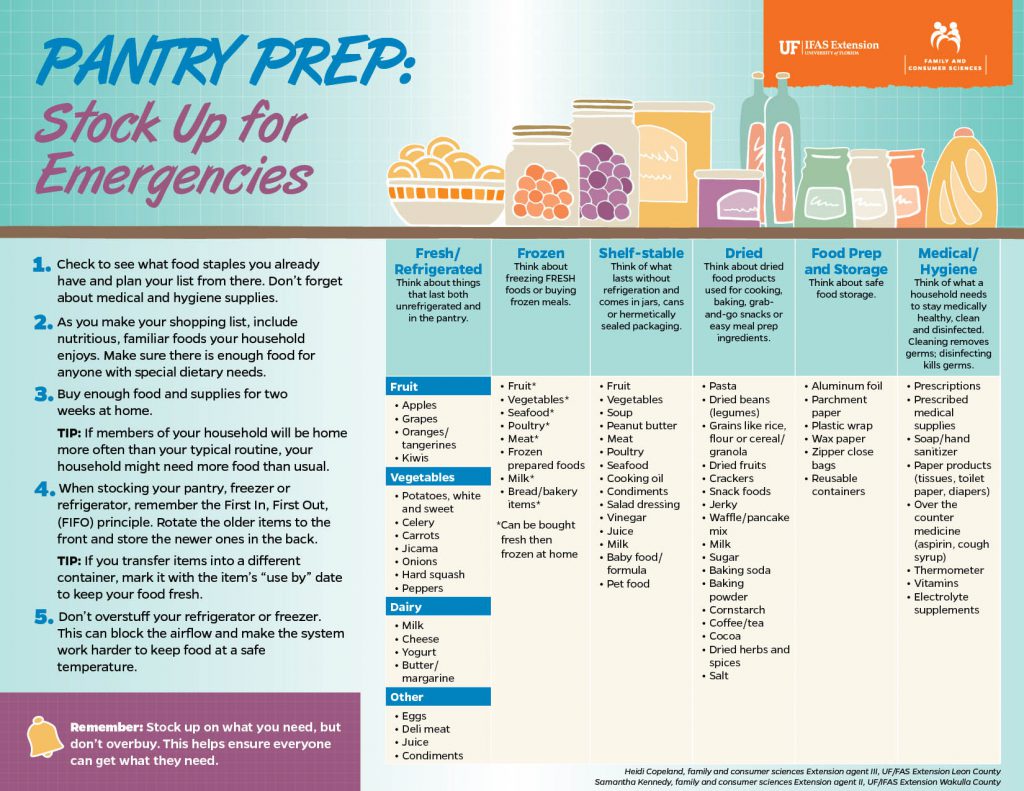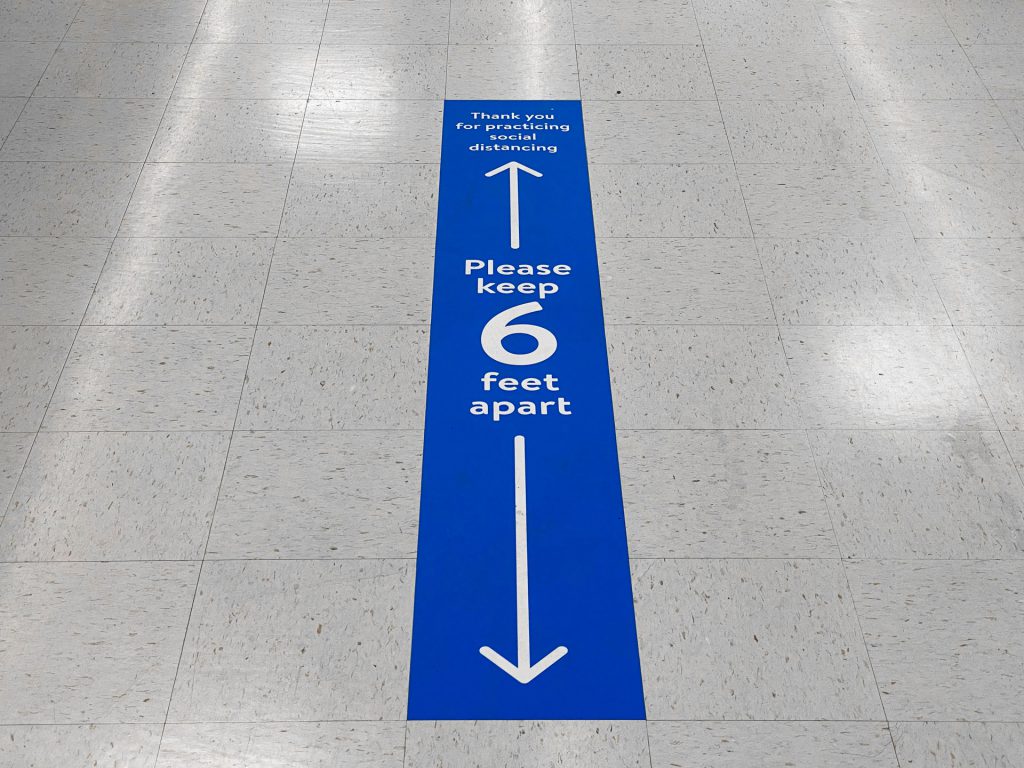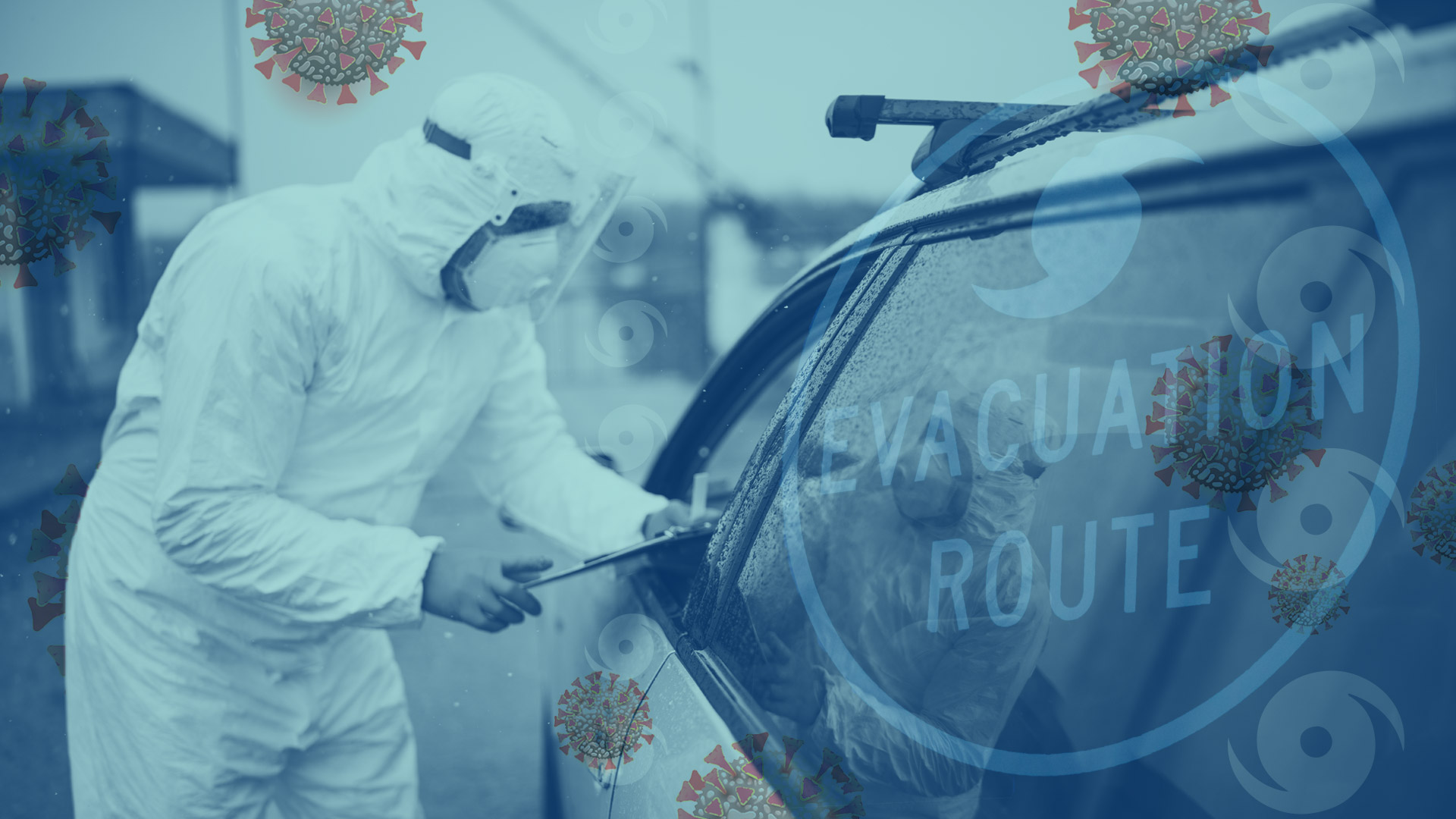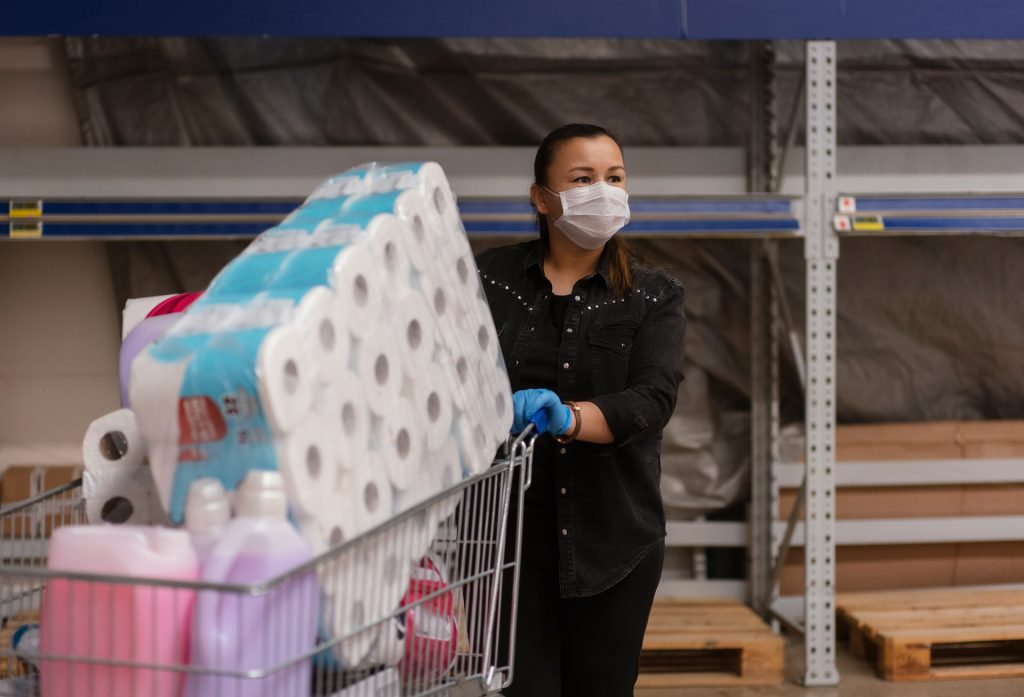Toilet paper? Check. Hand sanitizer? Check. Cleaning supplies? Check.
When you stocked up for quarantine, you likely checked several items off your hurricane preparation kit list as well. That head start will come in handy as hurricane season elbows its way into the pandemic in progress.
Now that the busiest months of an already active Atlantic hurricane season have arrived, University of Florida disaster preparation experts say there is still time to plan, not panic.
“Some of us are probably already in a kind of emergency mindset,” says Angie Lindsey, an assistant professor in the Department of Family, Youth & Community Sciences, a part of UF’s Institute of Food and Agricultural Sciences. “And some of the supplies we bought as we headed into quarantine are the things that should already be on our hurricane supply list anyway.”
If the bare spots on grocery store shelves are disconcerting, that’s natural, says Christa Court, an assistant scientist in the Food and Resource Economics Department, also a part of UF/IFAS. Food supplies, she says, are in a shakeout period but will rebound.
“We live in a society where we’re not used to seeing scarcity,” says Court, who also directs the Economic Impact Analysis Program in her department. “We’re lucky in that what we would like to eat is typically available on the shelf exactly when we would like to eat it.”
Familiar hurricane protocols – for preparation, mitigation, recovery – are still important, but this year may call for more conscientious planning and added flexibility.
“We likely will need to take an extra step in how we do the things we know how to do to prepare and mitigate and recover,” Lindsey says. “We’re Floridians. We’ve gotten through a lot before, but what we have typically done in the past during hurricane season may not work this year due to COVID-19.”
First Steps
Court says the gaps on grocery shelves that unnerve consumers are likely temporary signs of logistical issues, mostly regional in nature, and will work themselves out as suppliers adapt to changes in consumer demand.
Court says she and others are busy analyzing data from commodity groups and are finding disruptions are not across the board and are not consistent across the state. The data may reveal ways to make the food supply chain more resilient. For example, small farms in some commodity groups are thriving, she says, perhaps providing “a roadmap to being more resilient.”
We’re Floridians. We’ve gotten through a lot before, but what we have typically done in the past during hurricane season may not work this year due to COVID-19.”
ANGIE LINDSEY
UF’s Institute of Food and Agricultural Sciences
“There’s a new balance for supply and demand for a lot of commodities, so I think the craziness will calm down,” Court says. “The hoarders only have so much space in the refrigerator or freezer so they have to stop buying at some point.”
Court acknowledges that the scarcity, although short term, is scary for consumers.
“It’s something we haven’t experienced before in our lifetime necessarily,” Court says. “So, it pushes us into thinking we should buy more or stock up, just in case the shelves are empty again.”
Lindsey says research shows that stocking up is a control behavior, a kind of mental coping mechanism. She recommends responding to it by adding just a few items a week to the grocery list heading into hurricane season.
Other steps to take now include paying attention to medication refills and knowing where important documents are. Check to be sure insurance documents are up to date and print them out in case internet access is interrupted. Do the same with important numbers that could end up stuck in a cellphone that has no service. Know how to turn off the power in case flood waters hide live power lines.

When a Storm Approaches
Hurricane evacuations may be the trickiest issue in the midst of the pandemic, says Jeffrey Lindsey, the program director for fire and emergency services in the College of Design, Construction & Planning.
“Evacuations will require a new thought process and new ways of thinking about how we do things,” says Jeffrey Lindsey, who researches disaster emergency management and who has worked in emergency operations for wildfires, tornadoes and earthquakes, as well as hurricanes.
For Floridians struggling with job losses, shelters are a low-cost alternative to hotels, but he says avoiding overcrowding will be a challenge.

Guidelines from the Federal Emergency Management Agency call for 20 square feet of space per person for community shelters, but now shelter operators will need to add an extra 6 feet for social distancing. That likely means more shelters will be needed this year, Angie Lindsey says, in addition to shelters already added in recent years after hurricanes Irma and Michael.
As part of the Extension Disaster Education Network, Angie Lindsey has participated in conference calls as state officials explore the new hurricane season landscape. She encourages Floridians to stay tuned for more guidance (see websites below).
Each hurricane season, some Floridians weigh the benefits and risks of evacuating vs. sheltering in place, but this year there is a new wrinkle for people accustomed to riding out a storm with family or friends outside an evacuation zone: are you carrying coronavirus to people offering safe haven or conversely, if you were safe from coronavirus at home, will you be safe from it in someone else’s home?
“What if someone in your family is in a vulnerable population?” Angie Lindsey asks.
Every family should have an emergency plan and update it periodically, Angie Lindsey says. In a pandemic hurricane season, that plan is crucial.
“Sit down as a family, talk about evacuation options, write the plan down and stick it inside your pantry, so when things get hectic, you have that document that says ‘We talked about this. This is what we need to do.’
“Having that conversation is more important now than it ever has been.”
After the Storm
The images are familiar. A man with a rowboat rescuing a woman and her dog from a flooded building, a group of neighbors with chainsaws removing a tree from a home, volunteers distributing water and food, an embrace for someone who has just lost everything.
That natural impulse to rush to your neighbor’s aid might require a moment of hesitation this year.
Plan, plan, plan. Then execute your plan when the time comes.”
Jeffrey Lindsey
College of Design, Construction & Planning
“Our communities tend to come together when we have a disaster,” Angie Lindsey says. “But now, you have to think before you run out to take the tree off your neighbor’s yard. Can you help and stay 6 feet away? Do you have your mask?”
Community to community and state to state, mutual aid may be impaired as well, as each region is already struggling with the effects of the pandemic. Resilience and self-reliance may go hand in hand this year, Angie Lindsey says.
“In years past, we absolutely have relied very heavily on each other,” Angie Lindsey says. “This may be a time to think about how we can rely on ourselves.”
Jeffrey Lindsey says neighbors will still do their best to help, but the key this year is “plan, plan, plan. Then execute your plan when the time comes.”
“One of the things I stress is that those who plan seem to do fine,” Jeffrey Lindsey says.
Sources:
- Angie Lindsey, Assistant Professor, Department of Family, Youth & Community Sciences, UF/IFAS
- Christa Court, Assistant Scientist, Food and Resource Economics Department, UF/IFAS
- Jeffrey Lindsey, Program Director, Fire and Emergency Services, UF College of Design, Construction & Planning
Related websites:


